
ASA Members Planes & Projects
|
Home
About AMA Newsletter Membership Beginners Flying Sites Events ASA Boutique SAM Chapter Projects Articles Downloads Photo Album Weather Links |
If you have a plane or project that you'd like to share with the members, please send the photos (digital or otherwise....) to your webmaster at:

Bob Galler's Clevelan Sr. Albatross New!
Richard Shagam's Flemish Patient
Aradhana Sing Khalsa's Assorted Planes
by Bob Galler
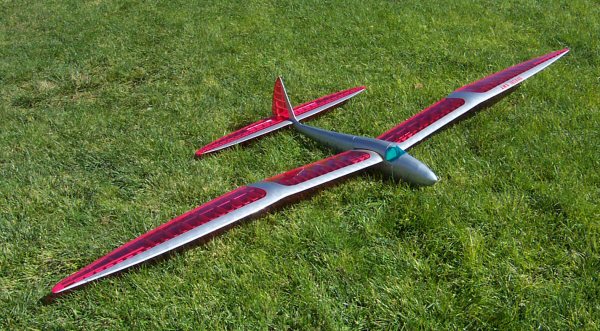
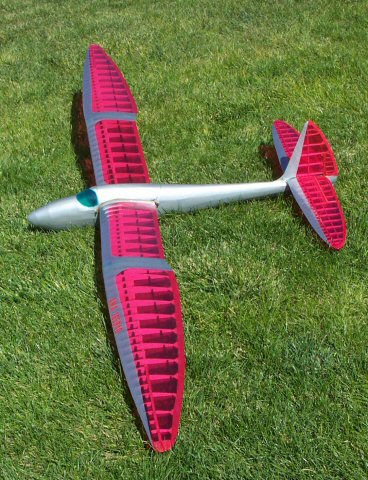
by Richard Shagam
Not exactly (okay not at all) an airplane project, but any modeler can appreciate this. Check what Richard has been up to here...
by Aradhana Singh Khalsa
Aradhana has just entered the discus-launch glider (DLG) world in a big way. He's built the Mark Drela design SuperGee II and here are some photos Aradhana supplied.
"A Beautiful Plane"
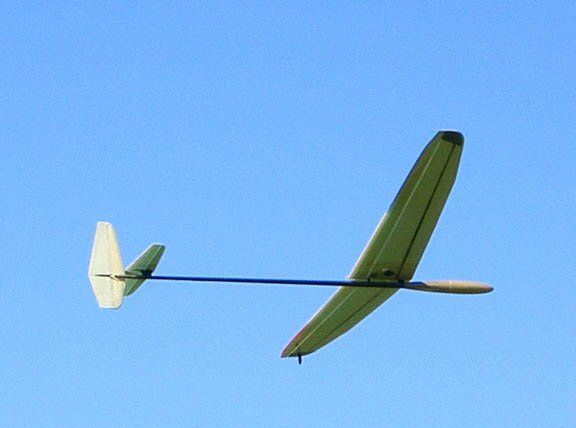
Hey, I didn't know ZZ-Top was into Hand Launch.
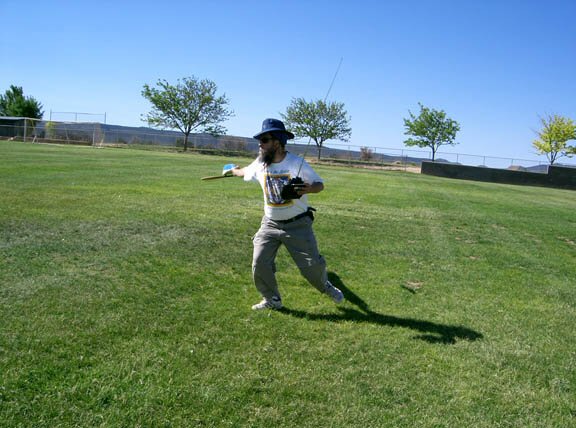
Concentrate.. concentrate.
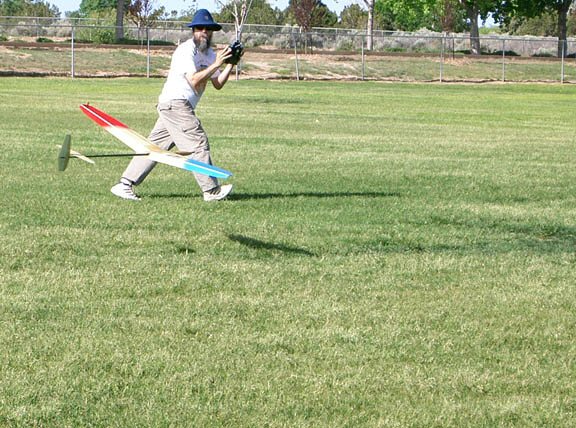
by John Ihlein
John has been getting serious about CNC foam cutting and 3D CNC router. Here's his CNC router table.
"That workshop looks way too clean for any real work to be getting done"
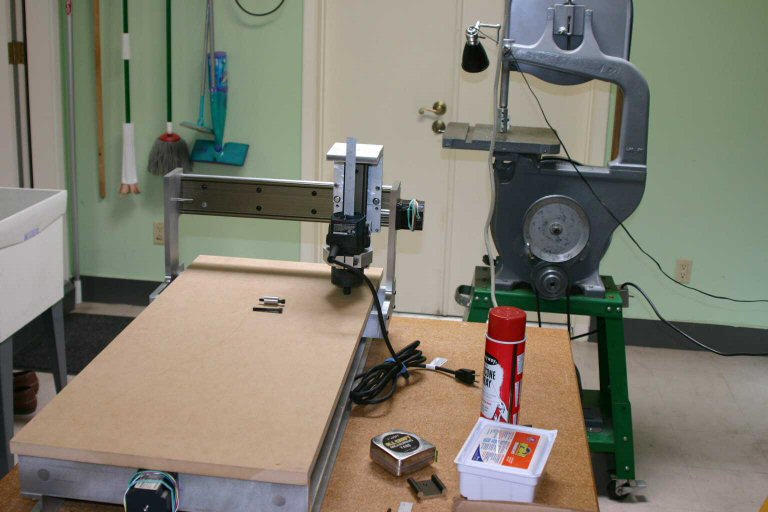
Looks just plane great!
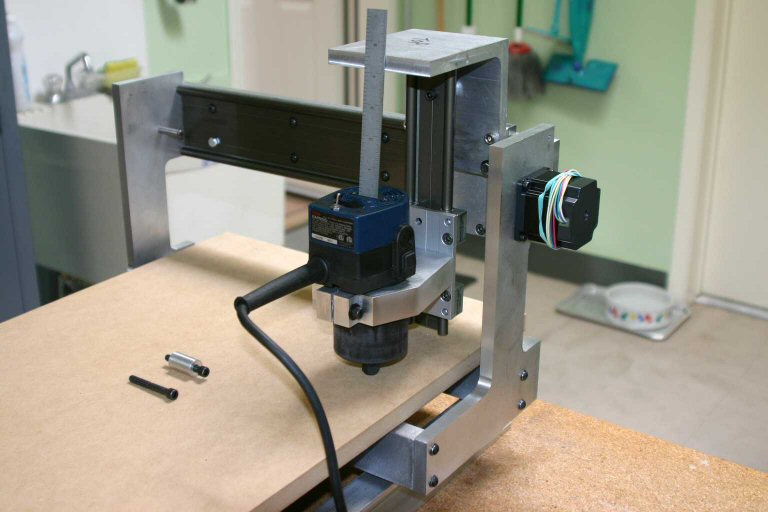
by Dan Tandberg
Dan has is own web site with photos and specifications on his many planes.
Check it out at Dan's Planes
Here's a shot of Dan and his Optma Pro
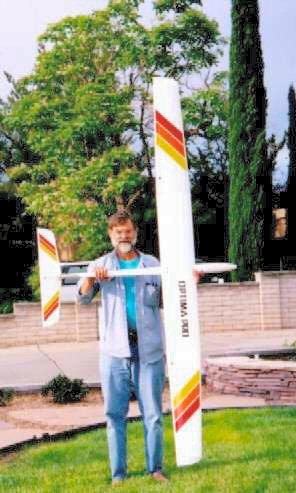
Assorted Planes
by Aradhana Singh Khalsa
Aradhana is one of our newest club members and here are some shots of his planes. He has built a beautiful Bubble Dancer shown below held by his son, Fateh Singh.
"A 5 footer and a 10 footer"
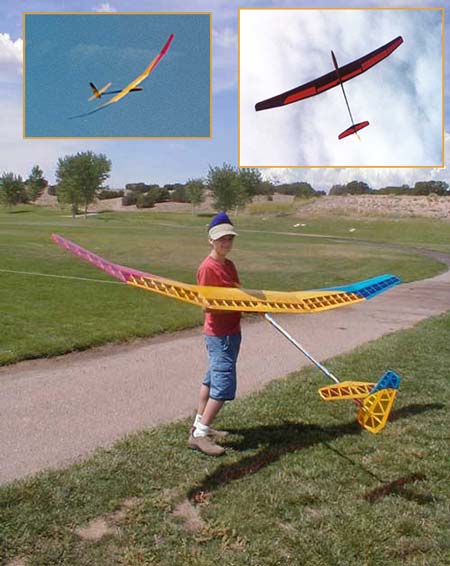
Here's Aradhana's "Cloud Ranger" awaiting completion.
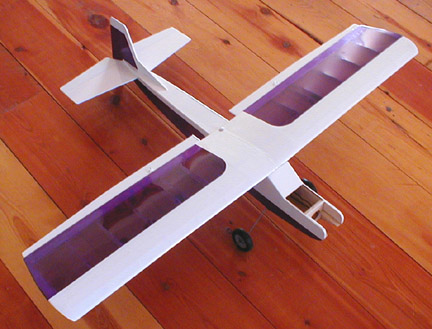
As Aradhana put it "On Final". Is that final approach or final flight? Looks
like a rough place to land.
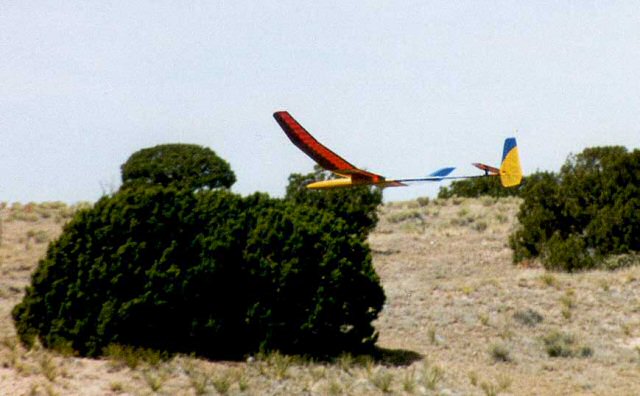
by Kevin Berger
Here's a shot of Kevin's Club Racer. For those of you who aren't familiar with these, the Club Racer is an all EPP foam pylon racer using an inexpensive 05 can motor.
For some specs and several construction photos of Kevin's Club Racer have a look at this PDF file Kevin's Club Racer.
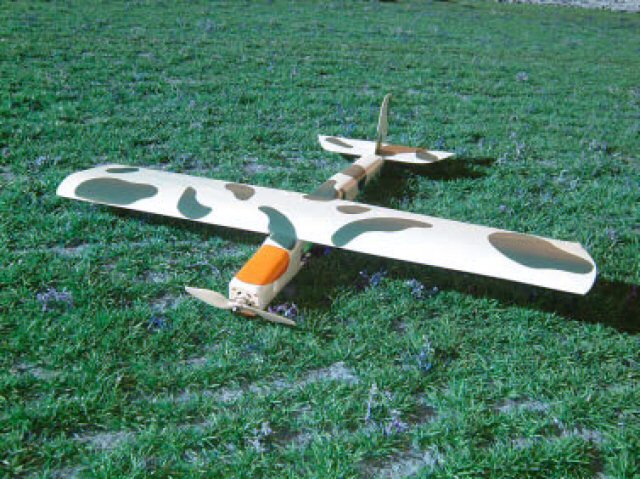
Assorted Planes
by John Ihlein
Here are several photos of some of John Ihlein's planes.
First is John's Eraser Xtreme 3m, molded, thermal duration sailplane. It is being held by one of our younger club members, John's son, Brandon.
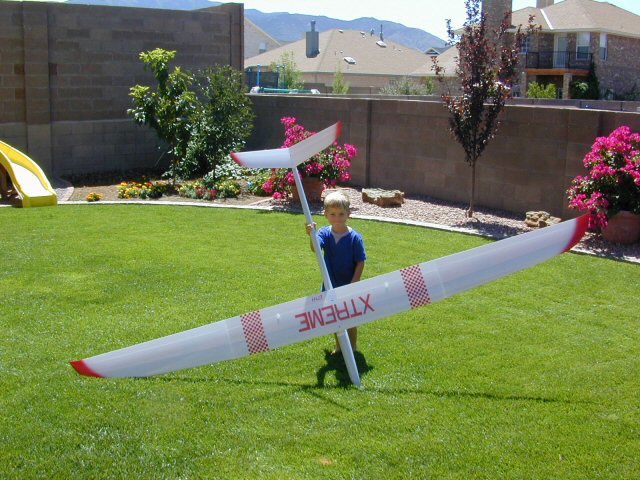
Here we have John's Orion Speed 400 electric sailplane.
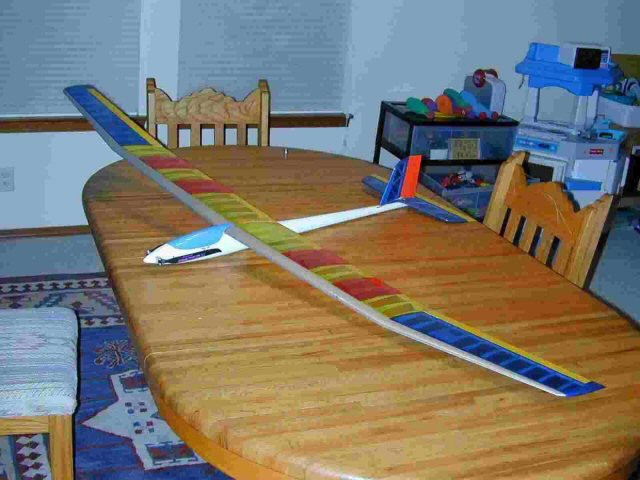
Here's John's XP3 Discus Launch Glider (DLG).
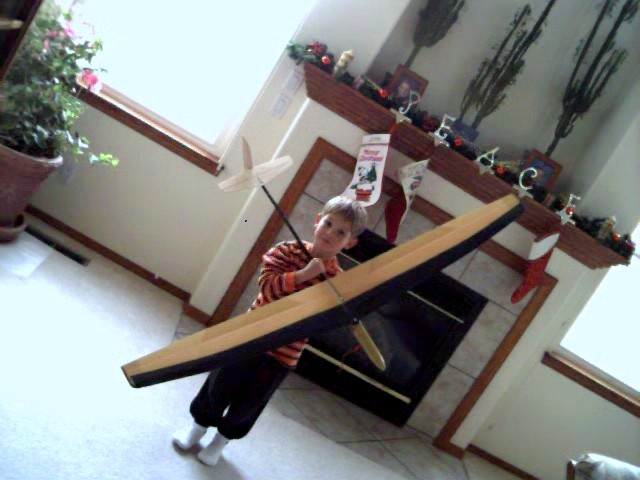
A-Cinder Electric Sailplane
by Clin Lashway
Here's a scratch designed and built electric sailplane meant to address the issues Clin has with his Astro-Challenger. It is similar in overall proportion, but the wing was strengthened significantly with a leading edge D-tube and trailing edge V-tube.
Large flaps were added to provided more control for de-thermalling and landing. However, it doesn't have ailerons but relys on the rudder and diehedral. It also uses the same power system used in his Astro Challenger described below. Finally the airfoil is an SD7032 which has much better low-speed characteristics than the E193 used on the Astro-Challenger.
Overall construction is built-up balsa with 0.75 oz fiberglass. On the wing, all sheeted areas were covered with 1/32" balsa and 0.75 oz fiberglass then painted. The open bays are covered in Micafilm.
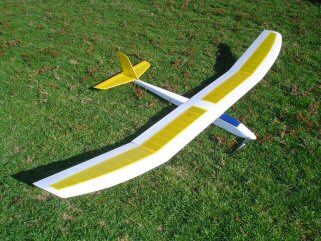
Initial flights show that in floats much better than the Challenger (probably due to the better airfoil) and that the flaps do provide the control hoped for in making precision landings.
Specs:
Wing Span: 2m
Weight w/CP-1300 battery: 41 oz
Airfoil: SD7032
Power System: see below
Astro-Challenger Modified for F5J
by Clin Lashway
Several people have asked me about the power system I recently put into my electric sailplane. So I thought I would pass along the details.
Power system:
Trinity Serpentine 14 Turn RC car motor $35
MP Jet 3.8:1 inline-gear box about $30
Jeti 50A controller
Aero-Naut 13.5" x 7" carbon folder
7-cell CP-1300 (green cells) battery
or 1250SCRs (old red cells)

Setup:
Motor provides for adjusting the timing. Advance motor
about 22 degrees. There are timing marks on the motor. I won't even try to
describe the direction to turn the motor end-bell. Just keep in mind that the
gearbox works in a way that makes the motor turn the same direction as the
prop.
Performance:
My airplane's all-up weight is about 36 ounces. This power
system has unlimited vertical, but not much extra, so optimal climb is at a
shallower angle. It climbs to about my comfort limit in 40 seconds.
Motocalc estimate of 1200-1300 ft/min climb equates to 800 to 850 feet in 40 seconds. Current draw is about 36 Amps static. This pulls the battery down to about 6V. Anymore loading and the BEC kicks off the motor.
This combination allows me to draw about 1000 mAHr from the batteries (before BEC cutoff) and provides about two 40-second motor runs. In other words, more than enough for a 40 second F5J climb and plenty more for multiple shorter climbs for fun flying.
UPDATE
This same power system in my A-Cinder draws closer to 44A. I believe this is due to a difference in timing of the motor (more advance), but I haven't confirmed this. In any case, the A-Cinder has a more powerful climb, but I have to use the CP1700 cells. The smaller CP1300 won't supply this current at a high enough voltage.
Comments:
Obviously, this system doesn't have the performance of a
brushless system, but it also doesn't have the price. The motor is heavier and
less efficient. But for those that have seen my plane climb, it certainly is
very usable.
The Trinity Speed-Gem series of car motors are available in just about every number of turns from 9-19. So you could play with other motors or prop sizes. If you wanted a little more power, you could go to a separate radio RX battery (no BEC) and if the controller will run at a lower voltage you can pull more amps.
Just keep in mind that more amps, does not necessarily mean more power out. The system I describe here is very close to maximum power out. In other words, a larger prop will pull more amps, but it wouldn't take much more before you actually get less power out. The extra power just goes to heating up the battery and motor.
I've been running this system for about 3 months and probably have run about 40 battery cycles through it. No problems or reason to believe the motor isn't doing fine.
Airframe:
My airplane is a Astro Challenger. The kit was originally
sold by Astroflight, but is now sold by Spirit of Yesteryear. It's a simple
rudder-elevator plane. Note: The flat center section wing.
Span: 72"
Flying weight with 7- CP1300: 37 ounces
Wing Area: 630 square inches
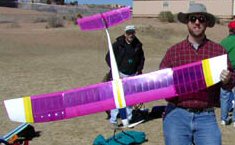
Within the ASA is a special interest group that is constructing a VERY LARGE, 1/9th scale, electric powered B-17 model.
Click HERE to go to the web site that has been created to show the progress of the project. (The URL is http://www.swcp.com/~dthrall/B-17page/ )
Other Projects